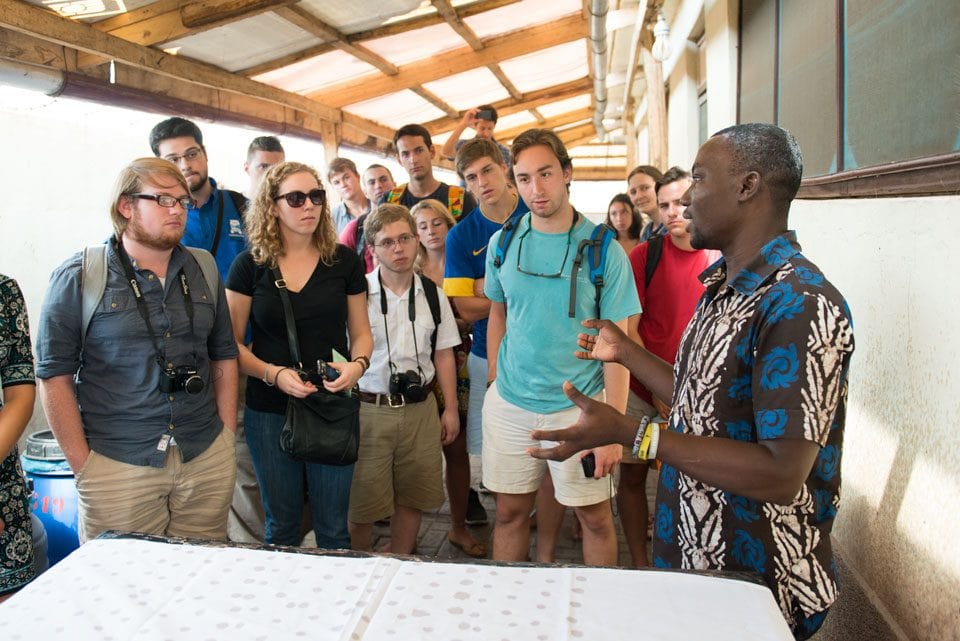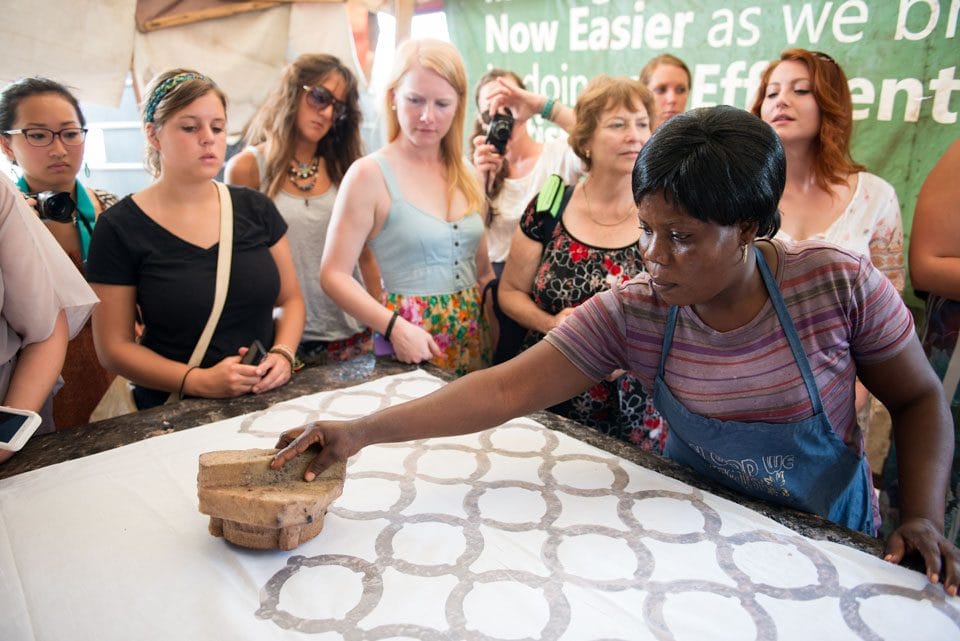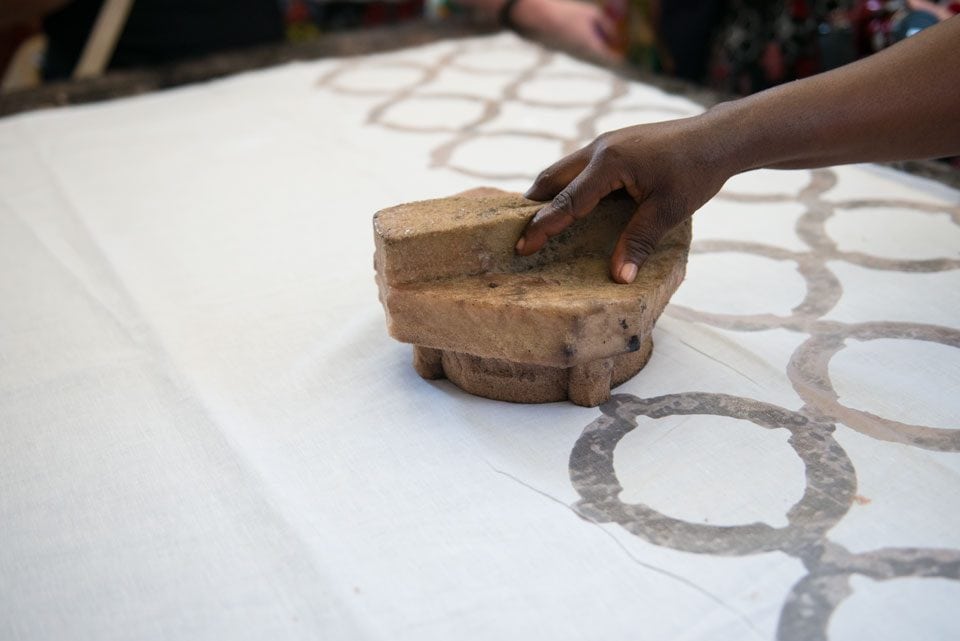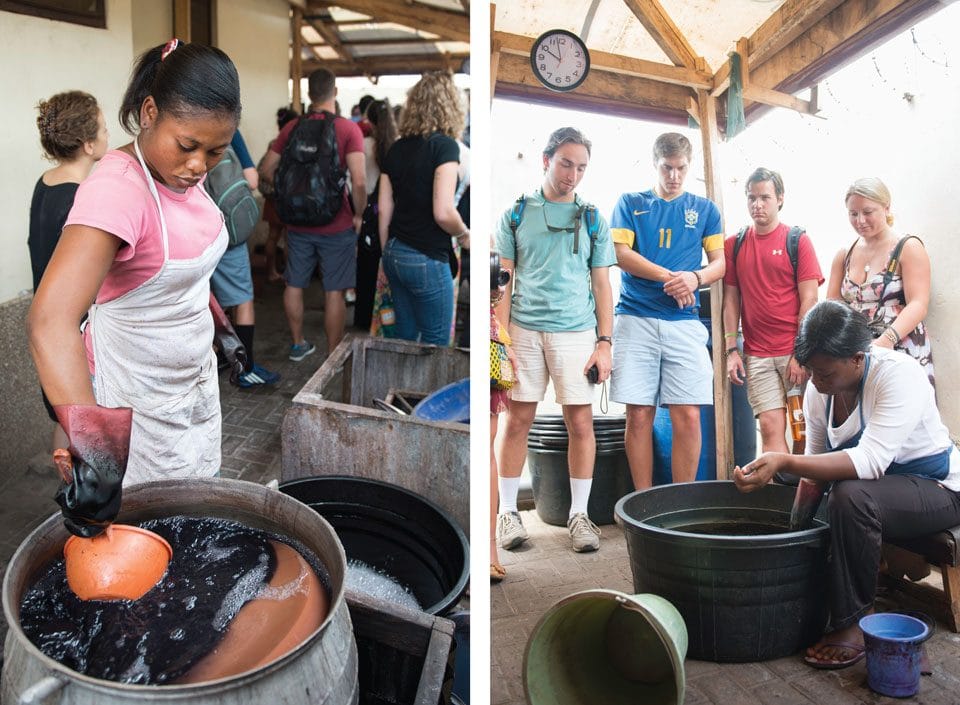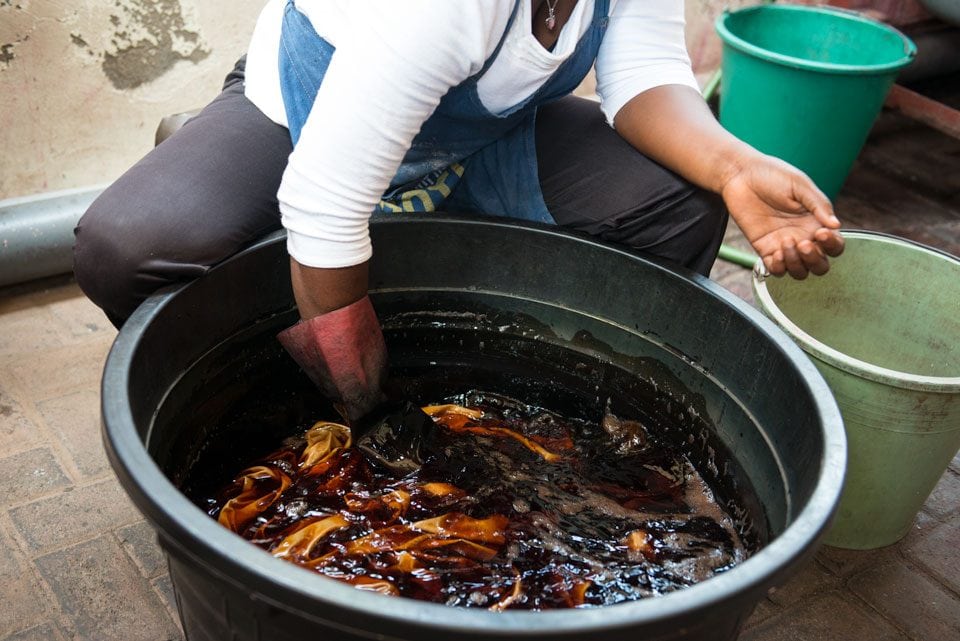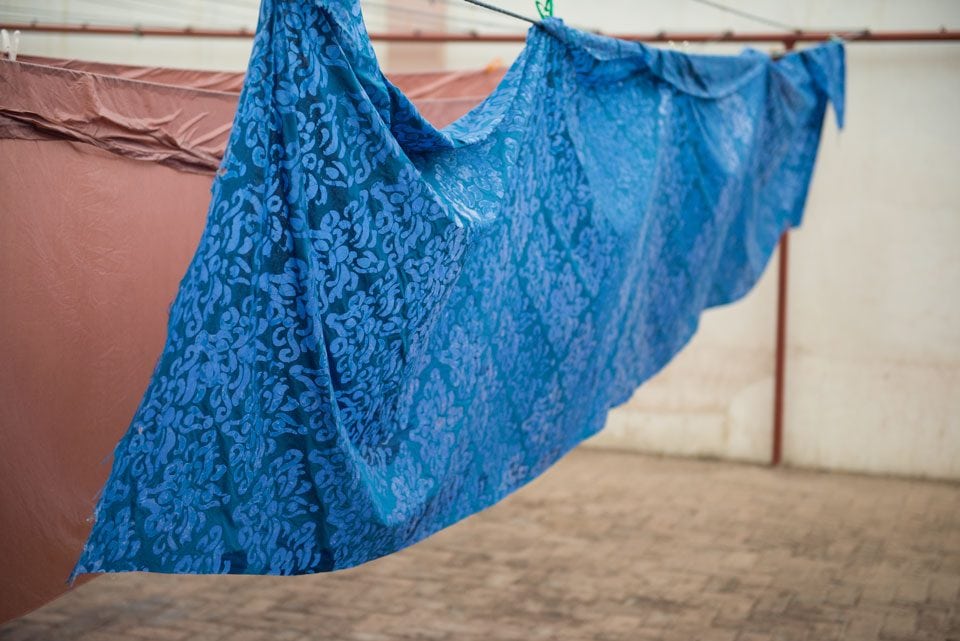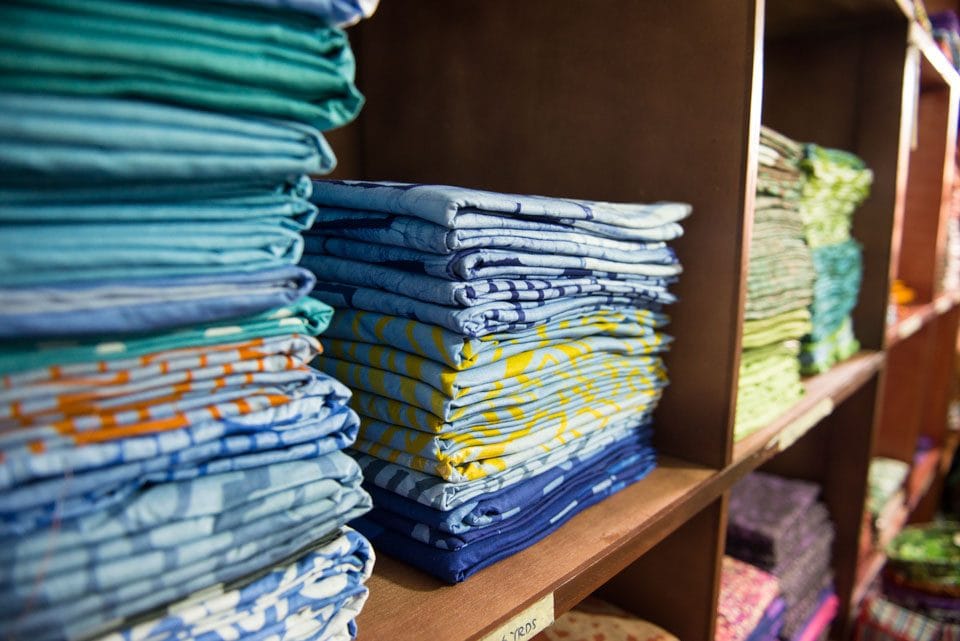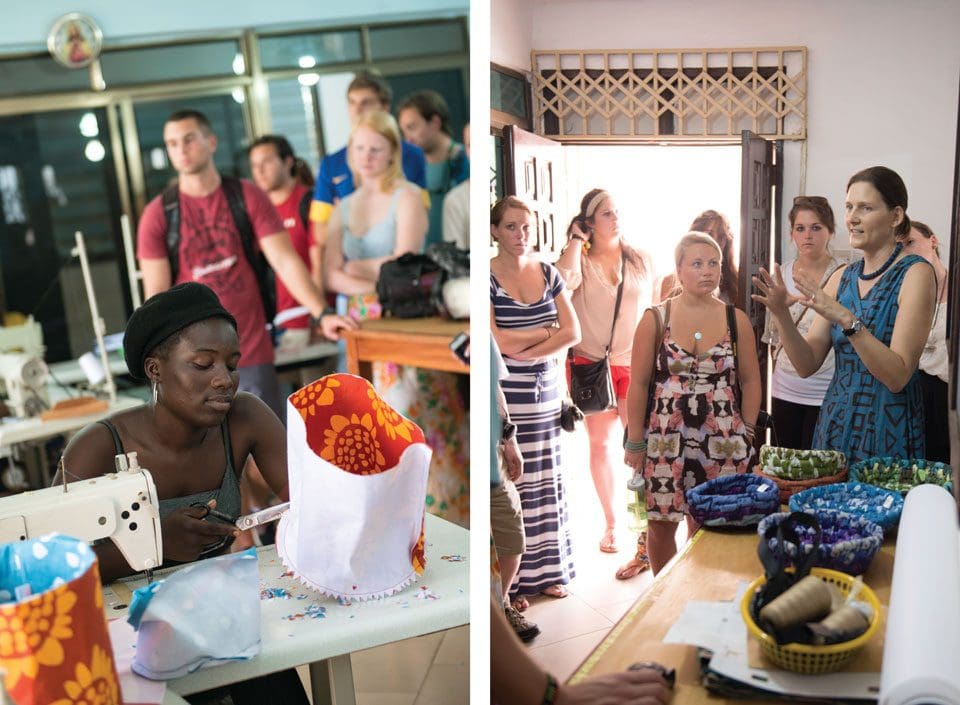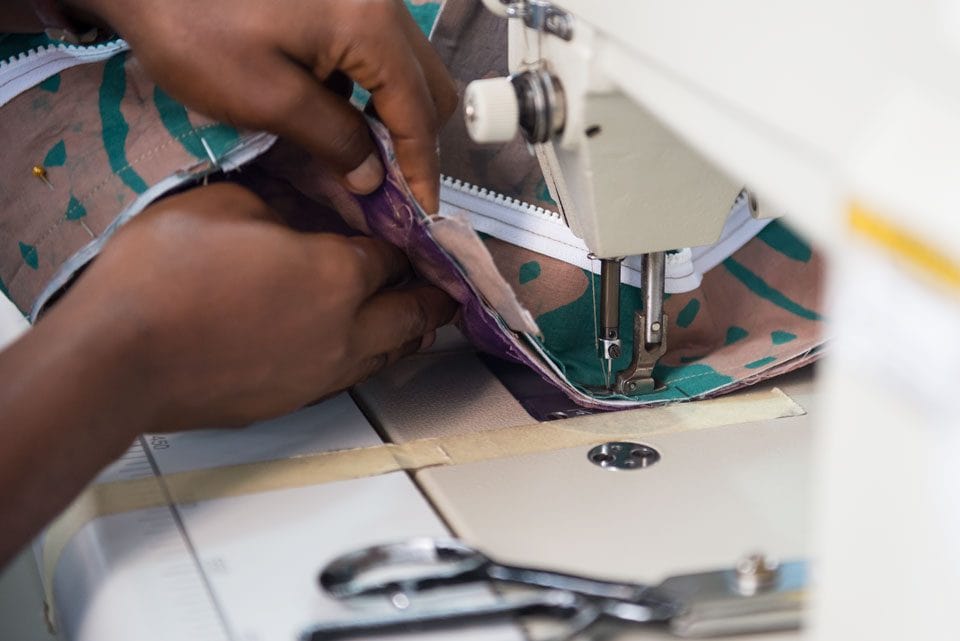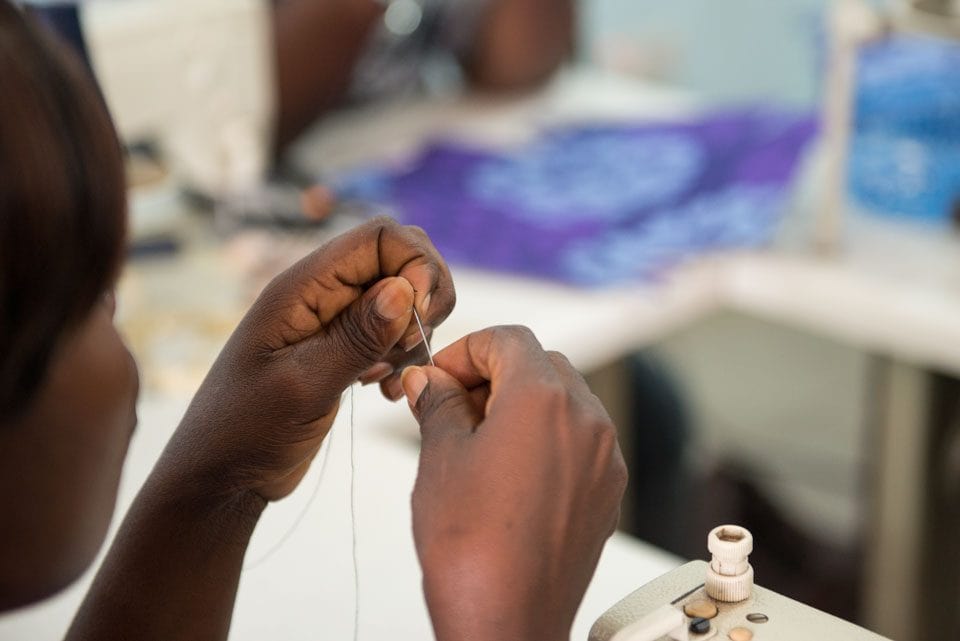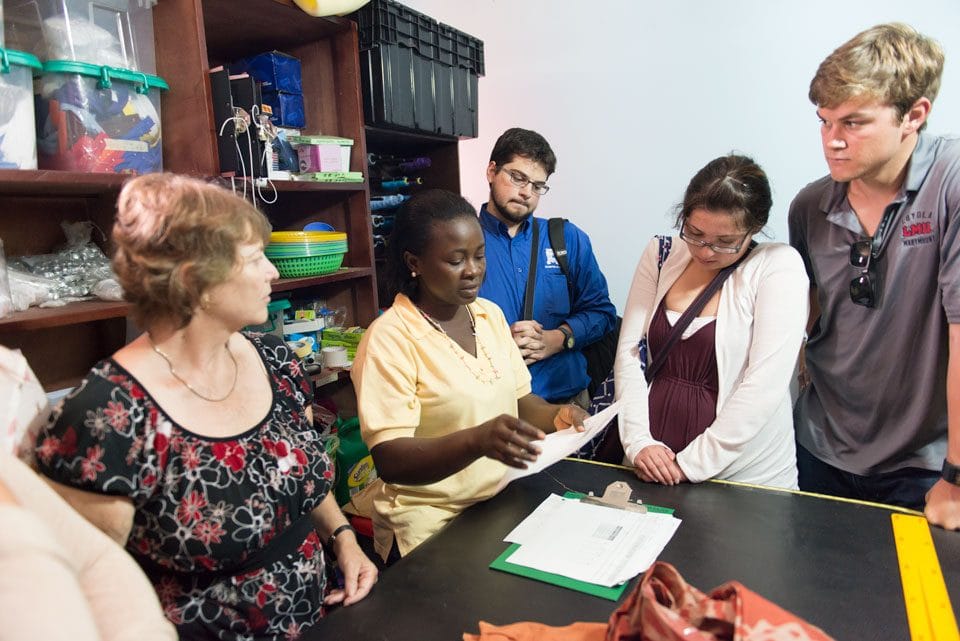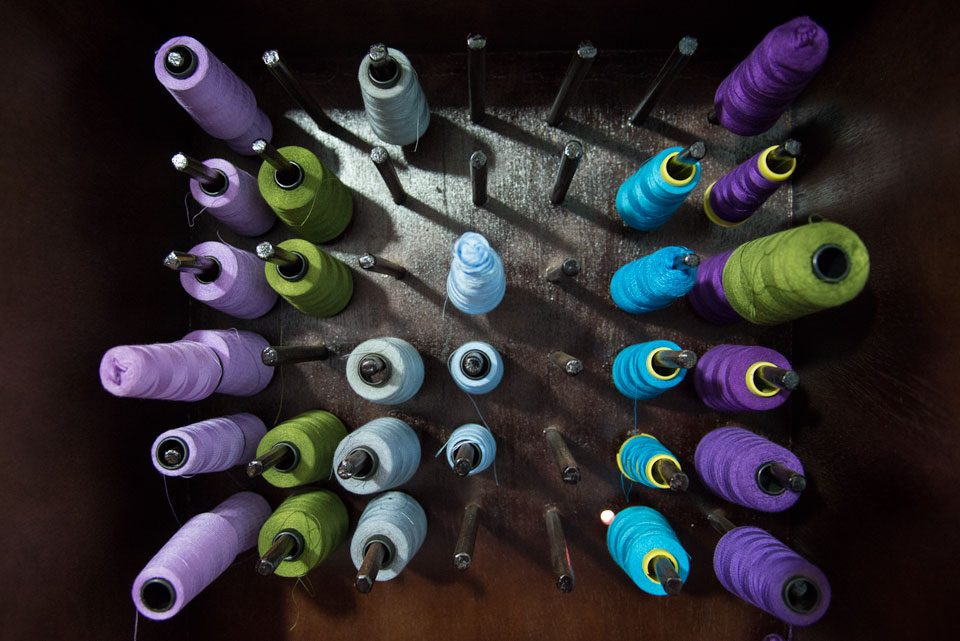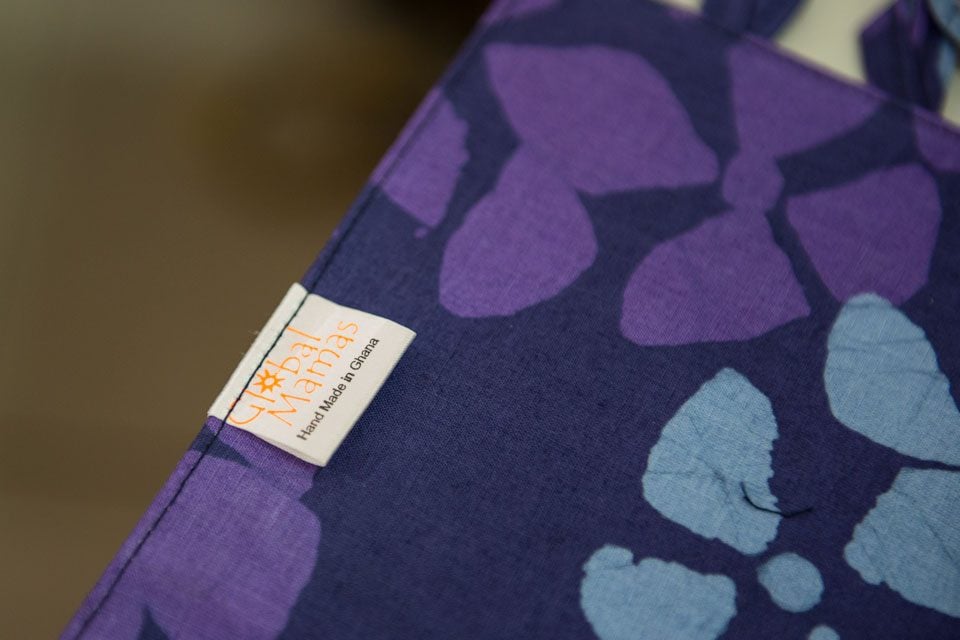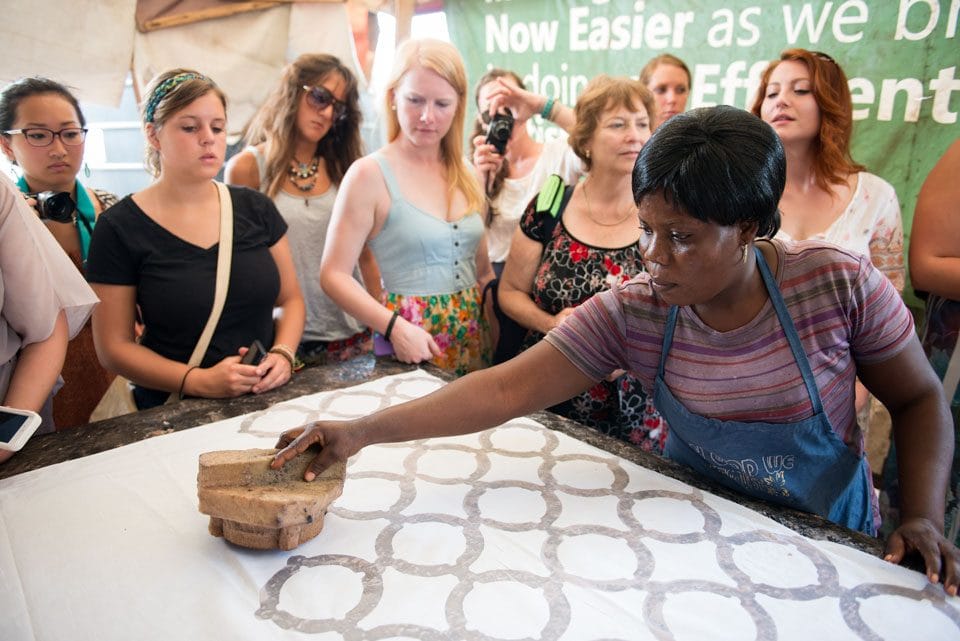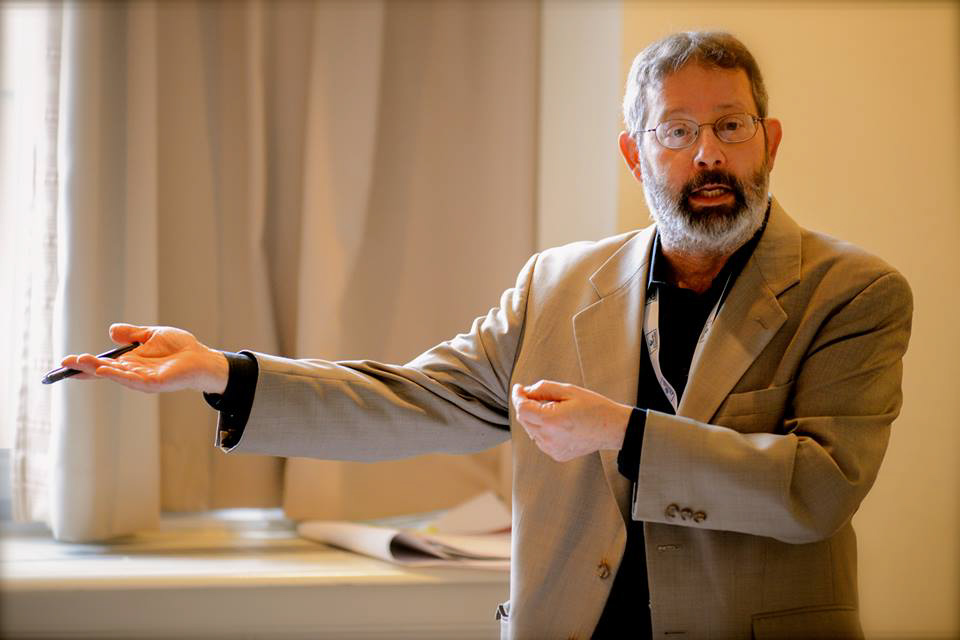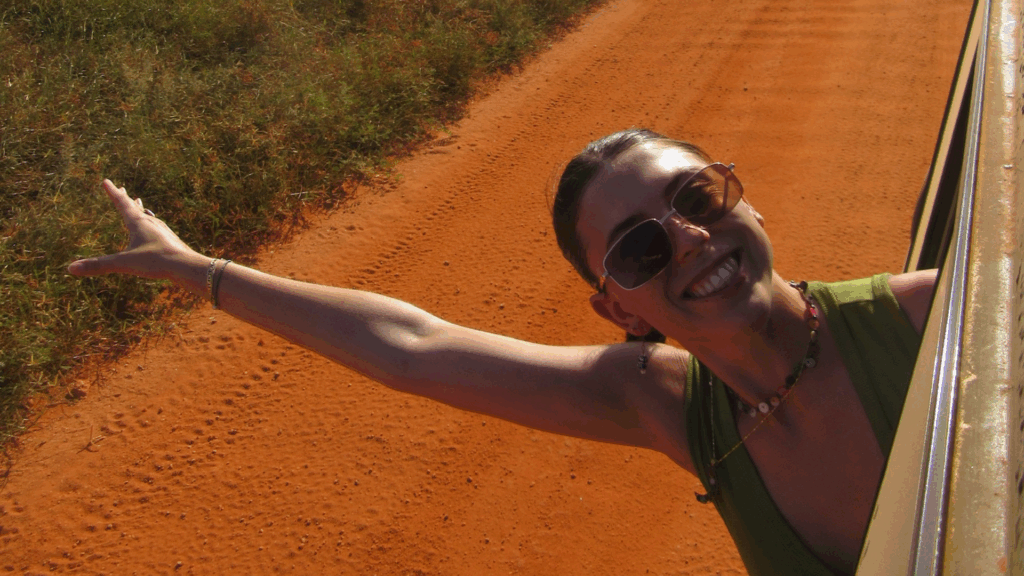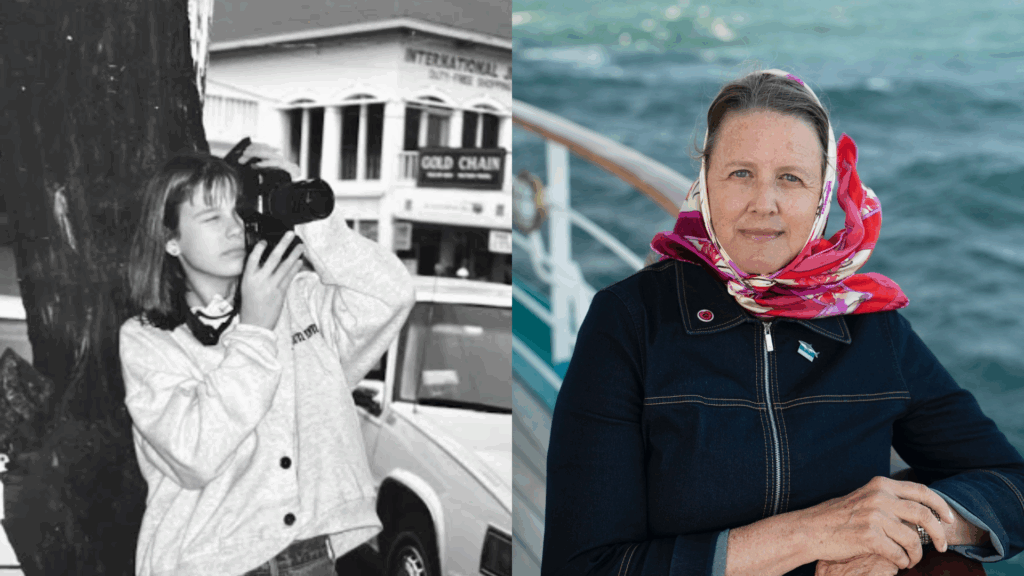Global Mamas is a non-profit and fair trade organization that helps women in Africa to become economically independent through the production and sales of their traditional handicraft. As part of their field lab to learn about the role of nonprofits and fair trade in developing countries, students in Laurie McNown’s comparative politics class, America in the World, visited the Global Mamas factory in Tema and the retail store in Accra. Global Mamas creates over 200 products that are exported to countries around the world, including the United States. Fair wages give African women the opportunity to improve their standard of living while creating more prosperous communities. As part of the field lab, students also met the founder and executive director of Global Mamas to learn more about the process of starting and running a nonprofit organization.
